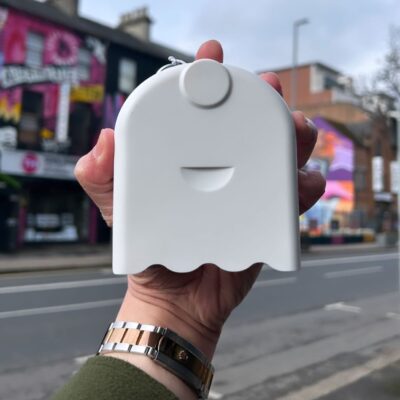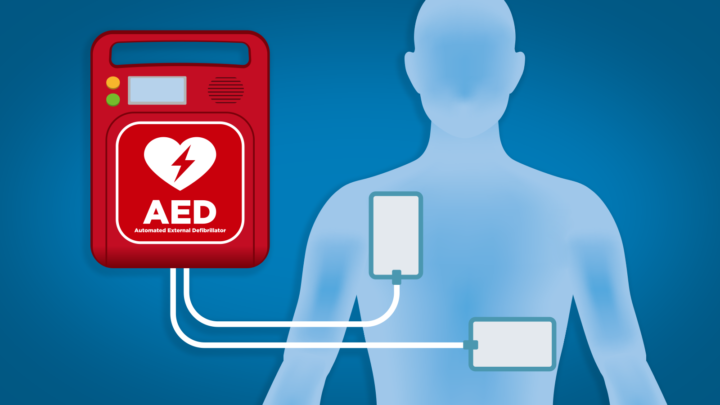Projects
Air Quality Monitoring
Volunteer for Cleaner Air: Track Your Commute with Airbeams!
Millions of premature deaths are caused by polluted air every year around the world. When exposed to excessive pollution, every portion of the population faces adverse health issues, but some groups are even more vulnerable. The risk of exposure is higher for people living near busy roads or industrial areas, and their backgrounds also factor in. Children, the elderly, those with compromised immune systems or pre-existing health conditions are among those at risk.
The first in Northern Ireland, LQ BID has funded the purchase of Airbeams. AirBeam is a low-cost, palm-sized air quality instrument that measures hyperlocal concentrations of harmful microscopic particles in the air, known as particulate matter, as well as humidity and temperature. The AirBeam measures particulate matter with proven accuracy and when used in conjunction with the AirCasting platform – or a custom solution – helps community-based organizations, educators, academics, regulators, city managers, and community scientists map air pollution and organize for clean air.
We invite participants to help us test these devices by collecting data that will enable us to create a “hot-spot” map for the district in the future. We are seeking four volunteers to use the Airbeams for a week during their cycle or walk from home to their office in the district or while strolling through Linen Quarter.
Airbeams are fun and easy to use, you might have already seen us doing street inspections sporting it.
Don’t worry! We will also provide a brief introduction on how it works.
If you are interested to volunteer or need further information, please contact our Healthy and Sustainable Manager Lawrence Tingson at Lawrence@linenquarter.org
With a focus on health and well-being of everyone living and working in the district, we believe additional measures to monitor particulate matters (PM) in the district should be in place to safeguard public health.
Recently released recommendations to improve air quality in Northern Ireland are:
- Improved monitoring of PM2.5 to enable accurate measurement of progress against targets. It will also allow for better provision of information to vulnerable groups on the risks to their health in their area.
- Increased investment in walking and cycling infrastructure to increase active travel and reduce the use of traditional combustion vehicles.
- Increased public awareness of the health impacts of air pollution and air pollution levels in their area.
Along with other sustainability initiatives, all these recommendations will be addressed through the LQ BID Air Quality monitoring initiative.
Private sector funding for air quality plays a pivotal role in advancing environmental stewardship and corporate social responsibility. Air quality monitoring is an investment in public health and environmental sustainability. By allocating resources to monitor air quality, we gain invaluable insights into pollution patterns, identify health risks, and create a basis for informed policymaking.
Emphasizing a commitment to clean air aligns our initiatives to sustainable development goals, demonstrating social responsibility and fostering a cleaner, greener district. Implementing measures to improve air-quality not only benefits the environment but also enhances health and ensures a healthier community and workforce. By monitoring air quality, our district can identify pollution levels and take measures to improve the heath and well being of our residents.
People from all over the district can use airbeams which can be stationary or mobile. This will encourage our network to take part in the initiative, which can lead to public awareness. By engaging stakeholders and increasing public awareness, we can also foster a sense of community and encourage collective efforts to reduce pollution.
How It Works:
With over 1,000 AirBeams in use worldwide and more than 100 million data points, the AirCasting platform is now one of the largest open-source databases of community-collected air quality measurements ever created. With its AirCasting platform, Airbeams allows community-based organizations, educators, academics, regulators, city managers, and community scientists to map air pollution and organize for clean air.
No. 1 – Collect and Measure
The AirBeam measures particulate matter by drawing in air and measuring the concentration and size of particles using a light scattering method.
No. 2 – Beam (Aircasting)
In mobile mode, the AirBeam communicates measurements to the Android or iOS device every second via Bluetooth. In fixed mode, the AirBeam communicates measurements directly to the AirCasting website every minute via either the WiFi or cellular network. AirBeam also includes an onboard GPS, clock, and SD card so it can operate in standalone mode and log data without being connected to a smartphone, WiFi, or cellular network.
No. 3 – Visualise
AirBeam data is then aggregated and crowdsourced on the AirCasting website, allowing AirCasters to visualize areas where air pollutant concentrations are highest and lowest and share their data with their community.
The AirCasting platforms empower community-based organisation, educators, academics, regulators, city managers, community scientists to map air pollution and organise for clean air.
No. 4 – Stay Informed
Good decisions are informed decisions. Integrating the AirCasting platform into your daily routine can guide healthier day-to-day decisions and help collect quality data to support environmental campaigns or research aimed at cleaner and healthier environments.
Who is using Airbeams?
In the UK, airbeams are used by NGO and academic organisations in Bristol, London, Sheffield, and Birmingham. There is none being used on the island of Ireland. There are four countries in the EU that use it: Spain, France, Belgium, and the Netherlands. Airbeams are widely used in the US, Brazil and parts of Africa.



